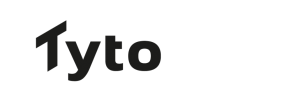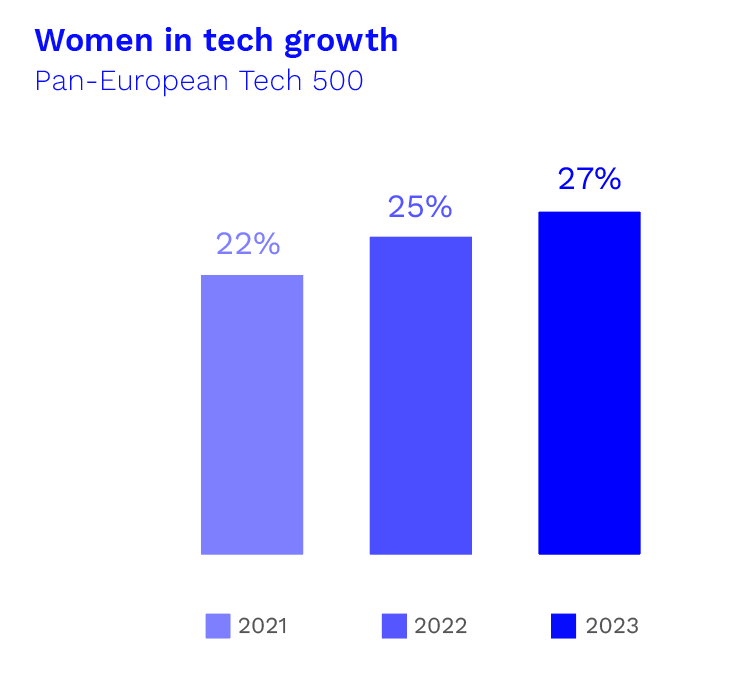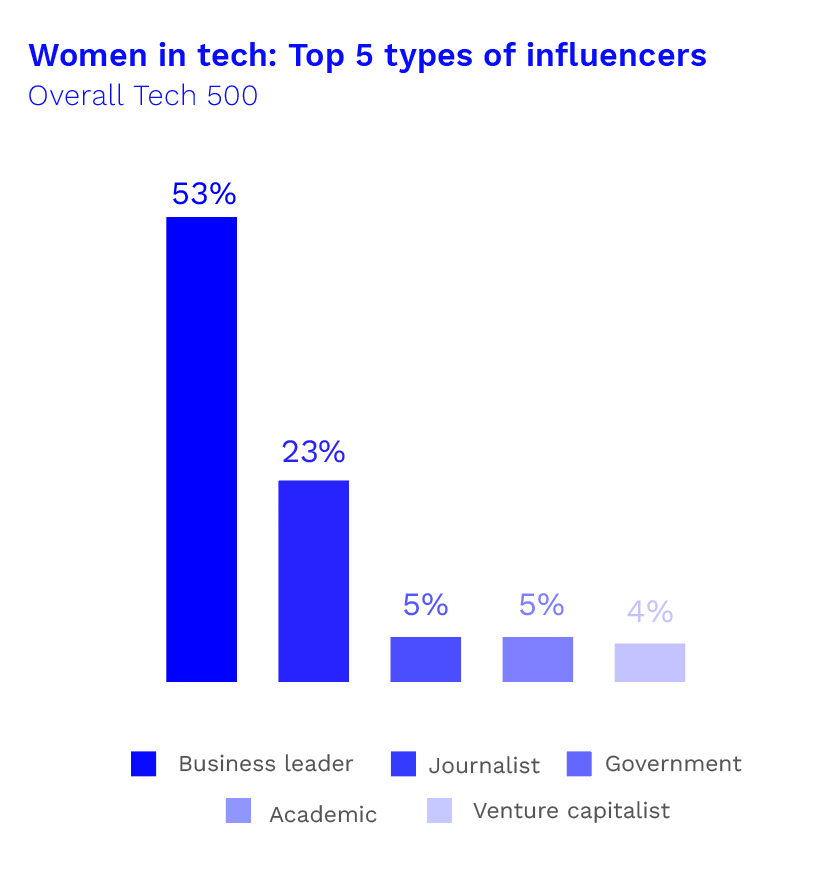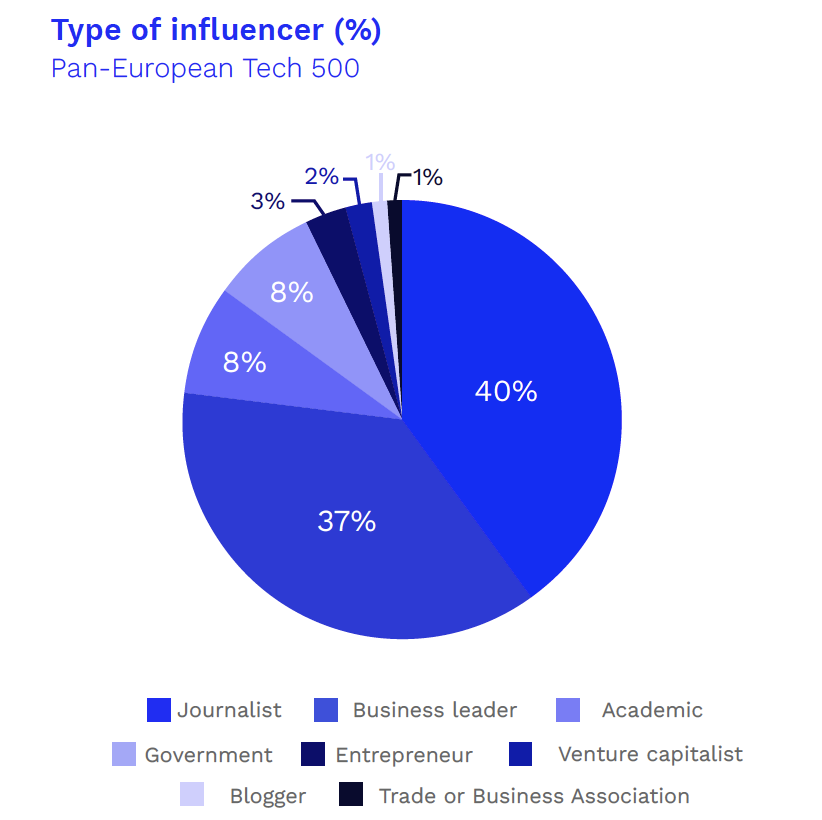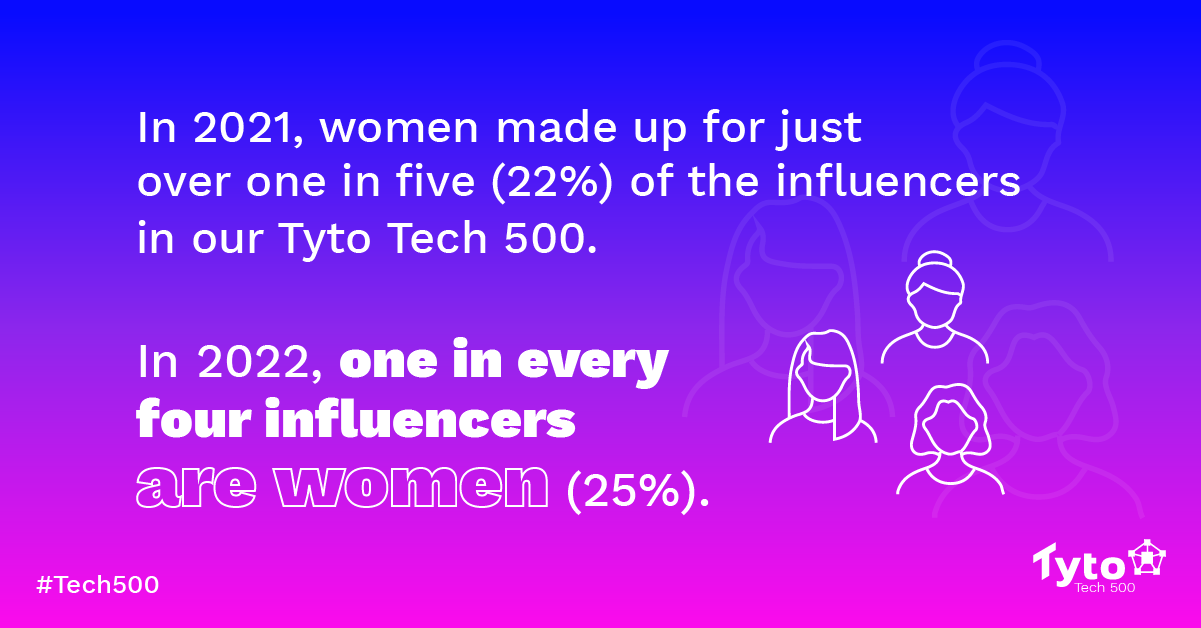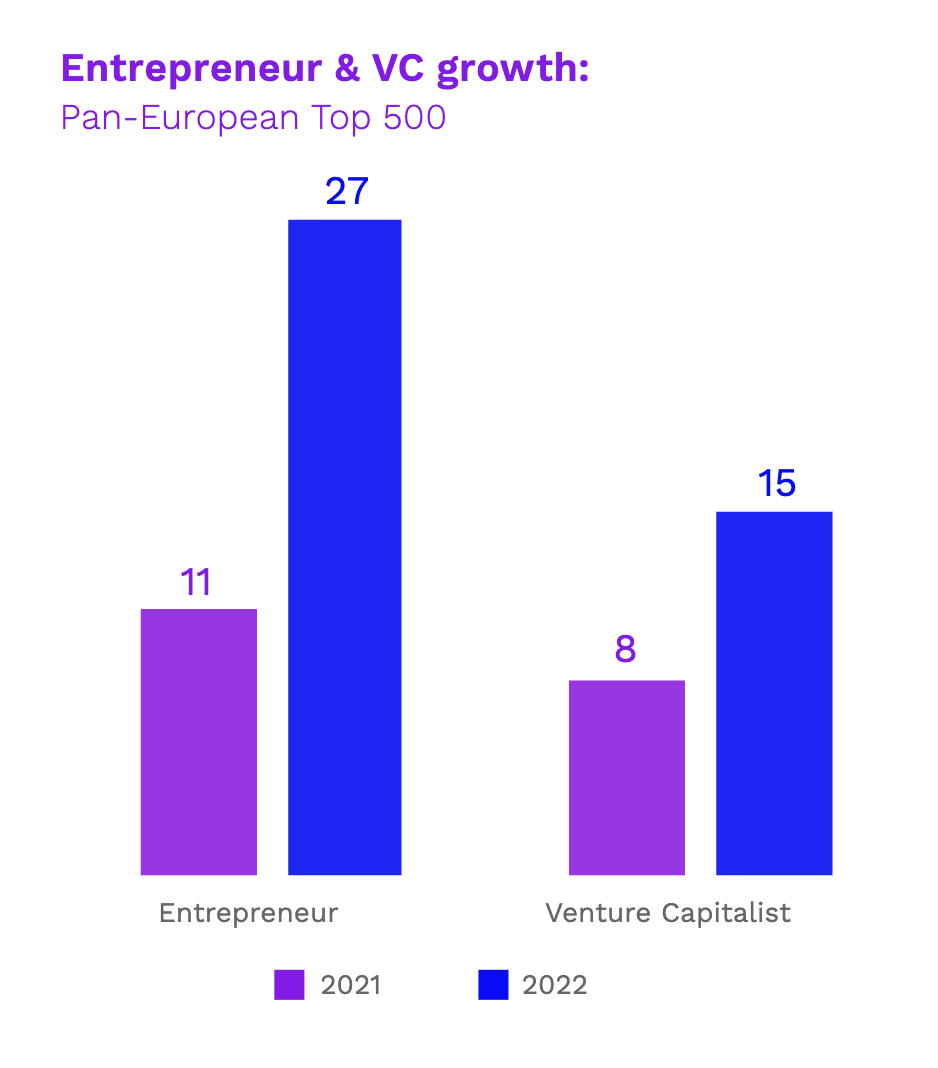Navigating change in the European landscape – tech sector trends revealed
In the rapidly advancing world of technology, the 2023 Tyto Tech 500 report unveils intriguing insights into the influencers and sectors shaping the European tech landscape.
Compiling the top influencers from five European countries – the UK, Germany, France, the Netherlands and Sweden – the report reflects an interesting dynamic of influence across tech sectors. While four major tech sectors continue to dominate, the rankings show notable changes, emphasising the agility and responsiveness of the European tech ecosystem towards global issues, opportunities and challenges.
The most dominant tech sectors
Similar to last year, General Tech, EnterpriseTech, Fintech and ConsumerTech represent more than half (53%) of all influencers in the Tyto Tech 500 rankings showing year-on-year dominance. However, beyond this foundation, shifts in influence across tech sectors reveal the responsive nature of the European tech scene to contemporary challenges.
Rising sectors: ConsumerTech, GeneralTech and AI & Data Science
ConsumerTech, General Tech and AI & Data Science emerge as the fastest-growing sectors rising in relevance this year in the overall Tech 500, marking a significant shift compared to last. The surge in ConsumerTech can be attributed to its continuous adaption to global trends such as remote work, learning and entertainment during the pandemic and more recently its ability to be at the forefront accessible and affordable AI and smart home solutions.
GeneralTech’s rising prominence reflects those influencers who are adapting to evolving digital landscapes and emerging technologies. The accelerated adoption of AI and data science solutions has undoubtedly contributed to its increased influence as a sector as individuals turn to experts for support and guidance.
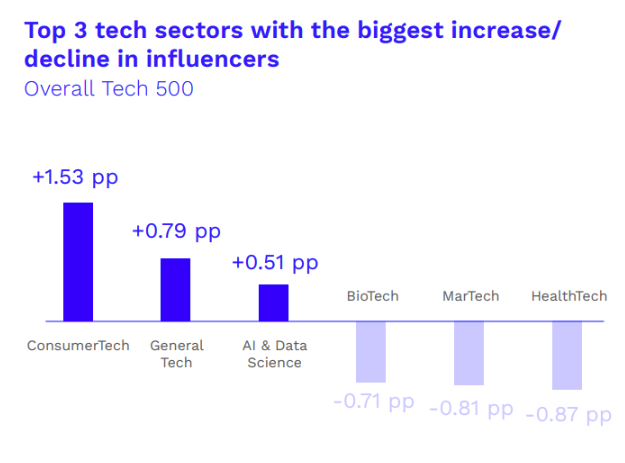
Declining sectors: HealthTech, MarTech and BioTech
In contrast, HealthTech, MarTech and BioTech have shown a decline in their presence in the overall Tyto Tech 500, compared to last year. This underscores a changing focus and shift in priorities across Europe, reflecting a decrease in importance of these sectors compared to the previous year.
Pan-European landscape: shifting tides
Analysing the pan-European Tech 500, the ranking of the 500 most influential figures from across the five countries analysed in the report, reveals nuanced changes in influence.
The Cybersecurity sector shows an increase in influence by 1.8 percentage points. The surge can be attributed to recent evolving cyber threats, increased digital transformation, and growing awareness of AI security concerns and regulatory pressures. Its rise demonstrates the pivotal role that the Cybersecurity sector plays in safeguarding technological advancements.
ConsumerTech and FinTech and GeneralTech also display a boost in influence across the pan-European Tech 500. In contrast, sectors such as FoodTech & AgriTech, MarTech and Travel & TransporTech witness a decrease in influence, signalling a shift in priorities within the pan-European tech landscape.
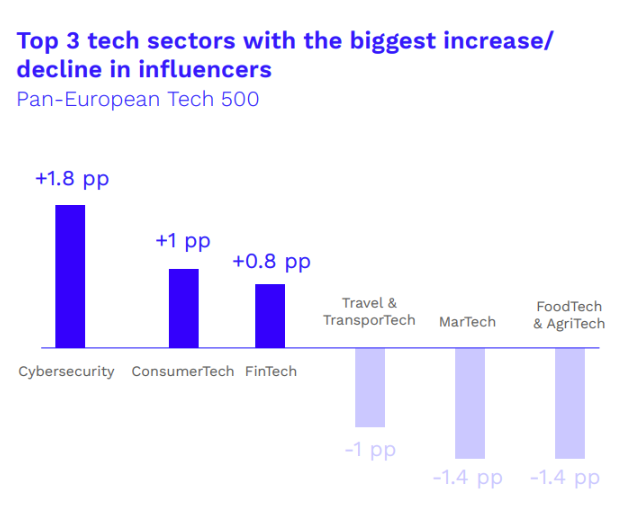
SpaceTech’s ascension
SpaceTech has risen substantially in relevance in both the overall Tech 500 and the ranking of the 500 most influential pan-European influencers . This surge in relevance suggests a growing acknowledgement of the importance of space exploration, satellite technology, and related innovations in the European tech sphere.
Only two other sectors out of 17 analysed have expanded their presence in both the overall Tech 500 and in the pan-European top 500. These are ConsumerTech and General Tech showing their significant and widespread influence in the last year as they maintain a majority position of influence over other sectors.
Five other sectors have declined in relevance throughout 2023 in both the rankings, compared to the previous year. These are HealthTech, MarTech, Travel & TransporTech, Quantum Technology and EdTech.
Navigating turbulent times with tech innovation
In an era marked by volatility and uncertainty, the European influencer landscape mirrors the challenges and opportunities of our times. As we navigate geopolitical tensions, war, cyber threats and economic challenges, technology stands as a critical tool for enabling agility and resilience as we respond to survive and thrive.
For a comprehensive understanding of the ever-evolving European tech landscape and in-depth insights into the Tyto Tech 500 influencers, download the full report. Discover emerging trends across influencer categories and tech sectors that are shaping the dynamic tech landscape of our future.
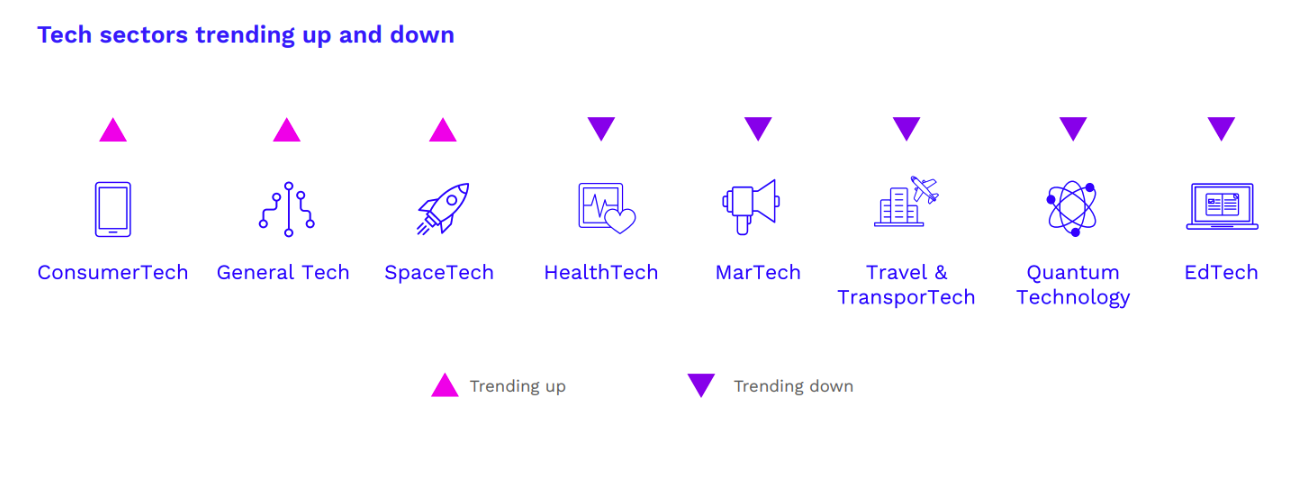
Featured photo by Google DeepMind
